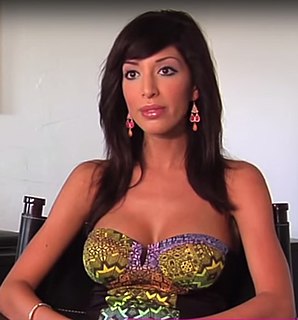A Quote by Chelsea Clinton
There's something else that my mother taught me, public service is about service. And, as her daughter, I've had a special window into how she serves. I've seen her holding the hands of mothers, worried about how they'll feed their kids, worried about how they'll get them the healthcare they need.
Related Quotes
It's useful to know how much society's holding you back. My mother would talk about how she was told by the head of her art school that she was the best painter, but that she wouldn't get the biggest prize because she would waste her talent by having children. I think we have to get honest with girls about how they can expect the world to block them, and we have to prepare girls, and ourselves, to break through those blocks.
When you think in terms of public service, I heard so much about what Mother Theresa had done in her life. And I was fortunate enough to get a chance to meet her and talk to her a lot about what motivates her and what drives her. And that, to me, is a person that really is an extraordinary role model.
The idea of the book ["The Japanese Lover"] came in a conversation that I had with a friend walking in the streets of New York. We were talking about our mothers, and I was telling her how old my mother was, and she was telling me about her mother. Her mother was Jewish, and she said that she was in a retirement home and that she had had a friend for 40 years that was a Japanese gardener. This person had been very important in my friend's upbringing.
She was the first person on either side of her family to go to college, and she held herself to insanely high standards. She worried a lot about whether she was good enough. It was surprising to see how relieved she seemed whenever I told her how amazing she was. I wanted her to feel strong and free. She was beautiful when she was free.
The love between a mother and her daughter is special. A mother takes her daughter under her wing and teaches her how to be a woman. In order to do this, you have to ask yourself what it means to be a woman of today. How do you balance care for others with your own quest for meaning and joy in life and how do you pass on these lessons to your daughter?
My fourth mother, my godmother, she passed away a couple years ago - her name was Gwen. She was the theater director over at the gym where I grew up and learned about all those awesome things I told you about already. She was the one who taught me terms like "upstage" and "downstage," all those technical things about the art of what I do - how to breathe what I see, how to move. They were all her tactics, not anything learned or given to me through a theory, but rather by her natural abilities.
One of the big changes in politics has been because families, individuals, have felt worried, insecure... worried about the economy, worried about their jobs, worried about their kids' futures... actually the disconnect between the public and media discourse and people's everyday concerns has become bigger not smaller.
I talked to my mother about it a lot. I asked her what it was like to grow up in New York and Harlem in the 1920s and 1930s, and I asked her about a woman leaving her husband. I asked her about how she would feel about that woman, and my mother grew up in the Church Of God In Christ, and she told me that the woman might be isolated because the other women thought she might go and come after their husbands. That's how they thought then.


































